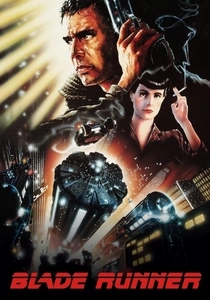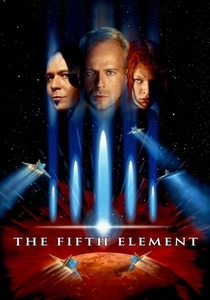In the realm of science fiction, the world of business often takes a backseat to interstellar adventures or dystopian futures. However, there are films that brilliantly combine the cutthroat world of commerce with futuristic settings, creating a unique blend of intrigue, innovation, and corporate warfare. This curated list of 10 sci-fi films about businessmen offers viewers a chance to see how ambition, technology, and ethics collide in the future. Whether you're a fan of speculative fiction or just curious about how business might evolve, these films provide a thrilling look into what could be.

Blade Runner (1982)
Description: Set in a future where synthetic humans are bioengineered by the powerful Tyrell Corporation, this film explores themes of identity, humanity, and corporate power. The business of creating life and the ethical implications thereof are central to the narrative.
Fact: The film's iconic "Voight-Kampff" test was inspired by the Turing test for artificial intelligence.
 Watch Now
Watch Now 
Robocop (1987)
Description: After a police officer is brutally murdered, he is transformed into a cyborg law enforcer by Omni Consumer Products (OCP), a corporation looking to privatize Detroit's police force. This film satirizes corporate greed and the commodification of law enforcement.
Fact: The film's director, Paul Verhoeven, was initially reluctant to direct, fearing it would be too violent.
 Watch Now
Watch Now 
The Fifth Element (1997)
Description: While primarily an action-adventure, the film features a business tycoon, Zorg, who is involved in a sinister plot to destroy Earth for profit. His corporate greed and manipulation make this film a fitting addition to the list.
Fact: The film's futuristic cityscape was inspired by the works of Jean Giraud (Moebius).
 Watch Now
Watch Now 
Gattaca (1997)
Description: In a future where genetic engineering determines one's social class and career, Vincent Freeman, born naturally, must impersonate a genetically superior individual to achieve his dream of space travel. The film explores the business of genetic discrimination.
Fact: The film's title is derived from the letters representing the four nucleobases of DNA.
 Watch Now
Watch Now 
The Matrix (1999)
Description: In a world where reality is a computer-generated dream, Thomas Anderson, a hacker known as Neo, discovers the truth about his existence. While not directly about business, the film's themes of control, power, and the commodification of human life make it a fitting entry for this list.
Fact: The film's iconic bullet time effect was developed specifically for this movie, revolutionizing visual effects in cinema.
 Watch Now
Watch Now 
The Island (2005)
Description: In a seemingly utopian facility, residents are told they are survivors of a global contamination, but in reality, they are clones created for organ harvesting by wealthy clients. This film delves into the ethics of human cloning and the business of life extension.
Fact: The film's concept was inspired by the 1979 film "Parts: The Clonus Horror."
 Watch Now
Watch Now 
The Adjustment Bureau (2011)
Description: A man discovers that his life is being manipulated by a mysterious group known as The Adjustment Bureau, which controls human destiny. The film touches on themes of free will versus predestination, with a business-like approach to human lives.
Fact: The film is loosely based on Philip K. Dick's short story "Adjustment Team."
 Watch Now
Watch Now 
Elysium (2013)
Description: Set in 2154, the film portrays a dystopian future where the wealthy live on a luxurious space station called Elysium, while the rest of humanity struggles on an overpopulated, ruined Earth. Business tycoons control access to life-saving medical technology, making it a stark commentary on class division.
Fact: The film's director, Neill Blomkamp, used real-life slum areas in Mexico City to depict the Earth's conditions.
 Watch Now
Watch Now 
In Time (2011)
Description: In a future where time is literally money, Will Salas, a poor factory worker, finds himself with a fortune in time after a chance encounter. This film explores the extreme capitalism where the rich live forever, and the poor must work to survive.
Fact: The concept of time as currency was inspired by the phrase "time is money."
 Watch Now
Watch Now 
The Circle (2017)
Description: Mae Holland joins The Circle, a powerful tech company, and becomes involved in its plan to eliminate privacy and anonymity. The film explores the business of surveillance and the ethical dilemmas of transparency.
Fact: The film's premise is inspired by the novel of the same name by Dave Eggers, which critiques the culture of Silicon Valley.
 Watch Now
Watch Now 








